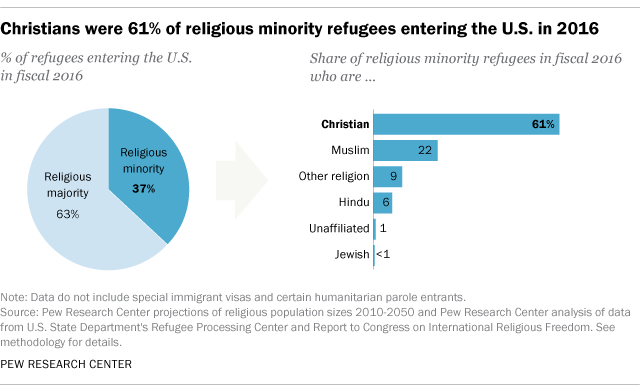After signing the executive order to impose “new vetting measures to keep radical Islamic terrorists out of the United States”, Donald Trump said he would prioritize bringing in Christian refugees, over any other refugees. His argument is that Christian refugees have been “horribly treated” and that not enough of them are granted asylum compared to Muslim refugees. Simon Henshaw, of the State Department’s Bureau of Population, Refugees, and Migration, said that although Christians made up about 10 percent of Syria’s prewar population, they comprised only about 1 percent of those who have fled, which may explain as to why the percentage of admitted Christian refugees is lower than that of Muslim refugees. Additionally, Christian, Jewish, and other refugee-focused programs have actually condemned efforts to exclude Muslims or to prioritize members of one religion over another.
I was able to connect this article to McGuire’s chapter about Religion, Social Cohesion, and Conflict. McGuire makes the argument that those whose religions fit the dominant society’s “image” of a religious community will gain acceptance more readily than marginalized ethno-religious groups. I believe that is what we’re seeing here in Trump’s executive order. This is also fueled through a sense of nationalism which Trump is also promoting. With nationalism, there always has to be an enemy – in this case being “radical Islamic terrorists”. This also ties in with religious particularism because we are seeing Trump view Christianity refugees as more valuable to resettle into the country. It’s extremely problematic.
http://www.huffingtonpost.com/entry/trump-christian-refugees-syria_us_588bb872e4b0b065cbbbf26f
